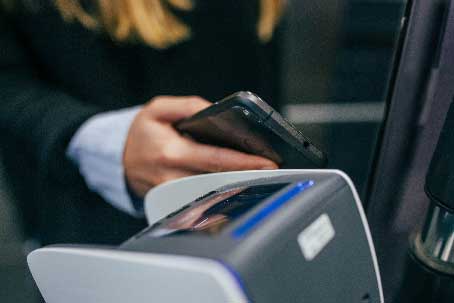Are you a small business owner trying to balance daily operations while keeping an eye on your finances? If you have plans for business growth, understanding how to optimise your tax situation can be a game-changer.
To make this process smoother, it’s crucial to grasp some key concepts that help you identify which expenses can be deducted for tax purposes. Our latest blog the various scenarios and provides examples of what expenses are tax-deductible for a business.
What Does ‘Tax-Deductible’ Mean?
In the realm of UK tax law, the term ‘tax-deductible’ (or ‘allowable for tax’) refers to expenses that your business can subtract from its pre-tax income when calculating the tax owed. This deduction reduces your taxable profit and, in turn, lowers your tax bill.
It’s important to note that not all expenses qualify as tax-deductible; they must meet specific criteria, primarily being ‘wholly and exclusively’ for business purposes.
Understanding the ‘Wholly and Exclusively’ Rule
The ‘wholly and exclusively’ rule is a critical concept when it comes to claiming tax-deductible expenses. This rule states that for expenses to qualify for tax relief, they must be entirely and exclusively for your business and necessary for its operations.
In simpler terms, only costs directly related to your business activities, without any personal benefit, can be claimed as tax deductions. By adhering to this rule, you’ll ensure accurate accounting of legitimate business expenses and reduce the risk of encountering penalties or complications during tax assessments.
Tax-Allowed Examples
These are tax-deductible expenses that can benefit your business and include (but are not limited to):
- Office Supplies: This includes expenses for essential office supplies i.e. stationery, printer ink, and paper.
- Travel Expenses: Costs related to business travel (such as fuel, public transportation fares and accommodation) are deductible as long as they are exclusively for business purposes.
- Professional Services: Fees paid to professionals like accountants, solicitors, or consultants for services directly related to your business activities.
- Marketing and Advertising: Expenses associated with marketing and advertising efforts, such as website development, print ads, branding and online advertising.
- Business Insurance: Premiums paid for insurance coverage specific to your business operations, such as liability insurance or professional indemnity insurance.
Non-Tax-Allowable Examples
These are expenses that are non tax-deductible and include (but are not limited to):
- Personal Expenses: Expenses purely of a personal nature, such as personal groceries, clothing or residential rent.
- Non-Business Entertainment: Costs incurred for non-business-related entertainment, such as tickets to sporting events or social gatherings unrelated to your business activities.
- Fines and Penalties: Any fines, penalties or legal fees resulting from non-compliance with laws or regulations.
- Capital Expenditures: Expenses related to acquiring or improving assets with long-term value for your business, such as buying property or major renovations. These generally can’t be fully deducted in the year of purchase but may be eligible for capital allowances.
- Private Use of Assets: If you use assets for both business and personal purposes, like a vehicle or computer, you can only claim the portion of expenses directly related to business use. Expenses solely for personal use are non-deductible.
What Expenses Can Be Claimed for My Business?
When in doubt, it’s wise to consult your accountant. Tax rules can be intricate. If you’re uncertain whether an expense qualifies as tax-deductible, reaching out to your accountant is your best course of action.
How can Everett King help?
At Everett King we’re here to be the friendly face you can rely on for expert advice, ensuring you’re in the best possible tax position. If you want to learn more about how we can support your business or have questions, please don’t hesitate to contact us. Your financial success is our priority!

